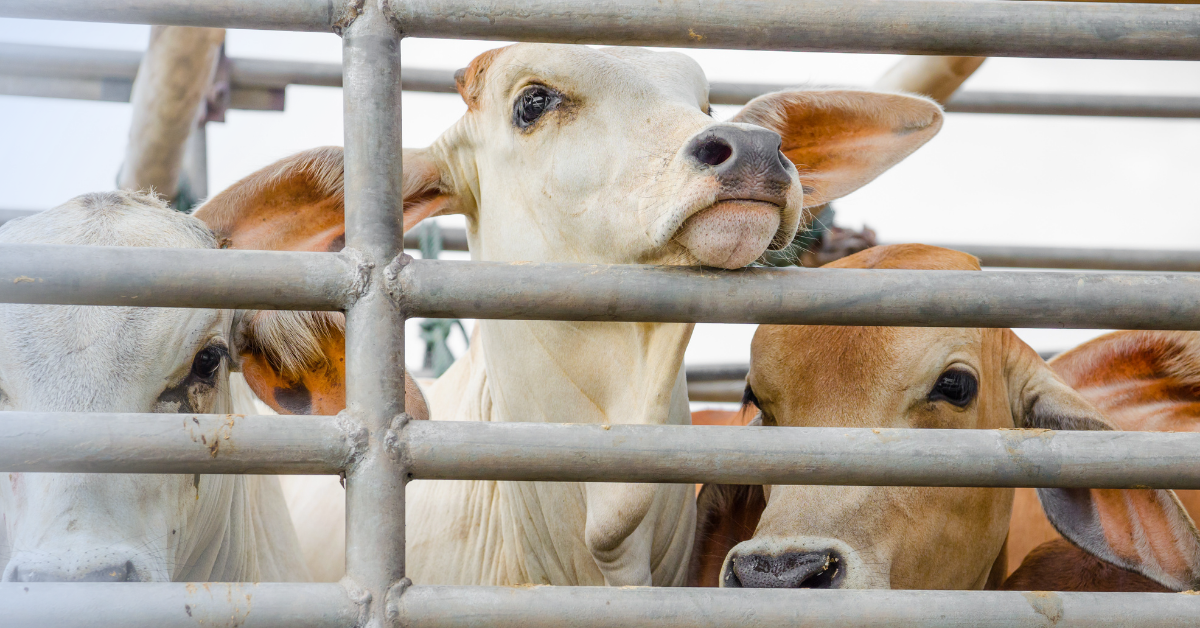
Researchers Want to Force Cows to Serve as Human Models
At the same time that the U.S. has finally started engaging in serious talks about the irremediable limitations and harms of animal research, modern scientists remain busy trying to figure out how they can exploit even more animals.
Ignoring science itself – which has demonstrated unequivocally that other-than-human animals are not predictive “models” for humans – scientists are keeping on with their wholly unethical, roundly self-serving, and scientifically unsound exploitations.
Rather than changing their methods, animal researchers are fixated on changing (or, really, further diversifying) their victims.
While farmed animals have long been brutalized at the (largely unregulated) will of animal researchers, the modern animal research industry is excitedly teeing up even more brutalization.
Case in point: In a paper published this past January, Cornell researchers showcased their efforts to increase the use and abuse of cows, whom they argue should be “‘put[] . . . on the map as a valuable animal model for translational studies….’”
Disturbingly, not only do these scientists demonstrate a resistance to ethical inquiry and an unwillingness to accept incontrovertible scientific findings, they also exhibit either a failure to know or understand the applicable laws or a troubling eagerness to intentionally misstate them.
In proactively defending their work, the researchers wrongly assert that “[e]very regenerative medicine therapeutic approach that you would want to use in humans always has to be tested in an animal model first” – and that their work is “important” because “the cow would [] be a good model for that”. In reality, however:
- The U.S. did away with this animal experimentation requirement in 2022, when it passed the FDA Modernization Act 2.0.
Animal researchers have billions of personal reasons for ignoring or denying this, however: “Many factors contribute to the continued use of animals as predictive models, and little, if any have anything to do with science. The animal experimentation industry is a multi-billion dollar business, with many vested interests in both industry and academia that have much to gain by maintaining the status quo–and much to lose by a dramatic change in how research is conducted. Upton Sinclair in his 1935 classic I, Candidate for Governor: And How I Got Licked wrote: ‘It is difficult to get a man to understand something when his salary depends on his not understanding it.’” (And, in this, the government is complicit at every turn . . . having even funded the research on cows being discussed here.) - Other-than-human animals, no matter their species, are “not viable for predicting human response”.
There is no doubt that similarities of physiological function between, say, humans and cows, “do not imply predictive ability in biomedical research….” To consider one of countless examples, the antibiotic Chloramphenicol was “tolerate[d] . . . well” by cows but found to cause life-threatening aplastic anemia” in humans (which would have been predicted by human-relevant, non-animal, in vitro testing).
The ethical and, yes, scientific answer to improving human wellbeing is to stop using other-than-human animals for human research altogether – not to change who we are using.
Despite centuries of evidence against the predictive value of animal research, it remains necessary (in 2024!) to force the animal research industry, including the U.S. government, to accept and act in accordance with this evidence – to act in the interests of both humans and other-than-humans by abolishing the use of other-than-human animals as human “models”.
Indeed, only by strongly and jointly opposing the “political sacred cow” of animal experimentation can we hope to free cows (and all other victims) from the clutches of researchers, for the good of all.
If you haven’t already, please take a stand with us today in favor of the FDA Modernization Act 3.0.
Share this page on Facebook or X (Twitter)